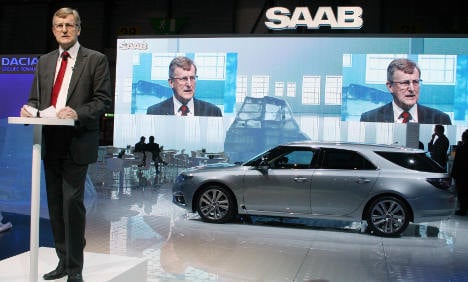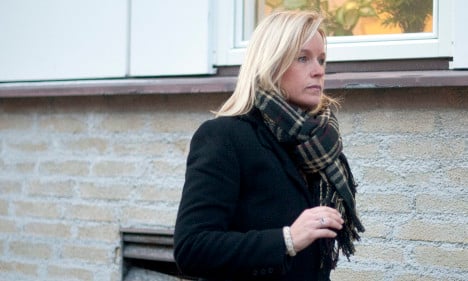Koenigsegg Group said BAIC, China’s fifth-largest automaker founded in 1958, would become a minority owner in Koenigsegg Group as part of a memorandum of understanding signed between the two parties.
BAIC already has joint ventures with DaimlerChrysler Benz and Hyundai.
“This is an important step on the road to a new Saab. We have a well-thought out business plan, an important partnership, and we are now ready to go on without state financing,” said Christian von Koenigsegg, head of the Koenigsegg Group, in a statement.
According to the memorandum of understanding, BAIC will be a minority owner in Koenigsegg Group, which will own 100 percent of Saab Automobile.
“Koenigsegg Group will own 100 percent of Saab Automobile. The aim is to
sign a final agreement later this year. Because of the signed confidentiality agreement, no further facts can be discussed at present. The Swedish government has been fully informed of this memorandum of understanding,” the Koenigsegg Group said in a statement.
The Swedish group had been short 3.0 billion kronor ($412 million) to complete the purchase of Saab first announced in June, though the total purchase price has never been disclosed.
With Wednesday’s announcement, Saab, which built its first prototype cars in 1947, has now moved another step closer to returning to Swedish ownership after an unhappy, largely unprofitable two decades under American management.
Koenigsegg, founded in 1994 by Christian von Koenigsegg, has just 45 employees and produces 18 high-end sports cars a year at more than a million euros ($1.4 million) each.
Saab, by contrast, employs 3,400 people in Sweden alone and sold just over 93,000 cars worldwide in 2008.
The Koenigsegg Group was created in May in order to buy Saab Automobile from GM, and was chosen from about 20 parties interested in purchasing the beleaguered Swedish automaker.
The group is controlled by a company owned by American businessman Augie K. Fabela, who also serves as chairman of the board; von Koenigsegg, who is the company’s CEO; as well as Norwegian businessman Bård Eker.
According to a previous business plan, around 11 billion kronor is needed to return Saab to profitability within two to three years.
GM has previously said it would contribute around 3 billion kronor in loan forgiveness and by paying for the equipment needed to produce the new Saab 9-5.
The deal also hinges on a loan from the European Investment Bank (EIB) worth nearly €400 million ($600 million), which required that the Swedish government act as a guarantor.
Koenigsegg still has to convince the Swedish government of the viability of its business plan for the iconic automaker.
Koenigsegg Group said it was “now focusing on the discussions” for the state guarantees.
Von Koenigsegg has previously said he wants “to transform Saab into a stand-alone vibrant entrepreneurial company and make it ‘sustainable’ by making it profitable.”
“I see Saab as having its own niche as a post modernist, sporty, comfort car with an environmental aspect,” he said in June.
But questions have abounded in Sweden over what the future holds for Saab, with some experts and commentators expressing doubts about whether Saab’s new owners have the necessary expertise to run a major car company.
Under GM’s stewardship, Saab rarely posted a profit and last year lost 3.0 billion kronor ($341 million at the time).
Another Chinese carmaker, Geely Holding Group, has confirmed its interest in acquiring Sweden’s other carmaker, Volvo Cars, from US group Ford.
BAIC is, according to the Koenigsegg Group, one of the leading and fastest growing auto manufacturers in China.
The Beijing-headquartered company is expected to sell 1.13 million cars this year.
“It’s gratifying that we can go out with this news now. It dispels concerns for both employees and customers,” said Anette Hellgren, the local leader for the Unionen labour union chapter at Saab Automobile, in a statement.
She thinks the solution gives hopes for the future.
“What’s important is that BAIC is a minority owner in Koenigsegg Group. It’s still Koenigsegg Group that is buying Saab. There won’t be any direct Chinese ownership, which feels safe. There is a lot of apprehension when it comes to Chinese companies, but I have faith in this case,” she said.



 Please whitelist us to continue reading.
Please whitelist us to continue reading.
Member comments